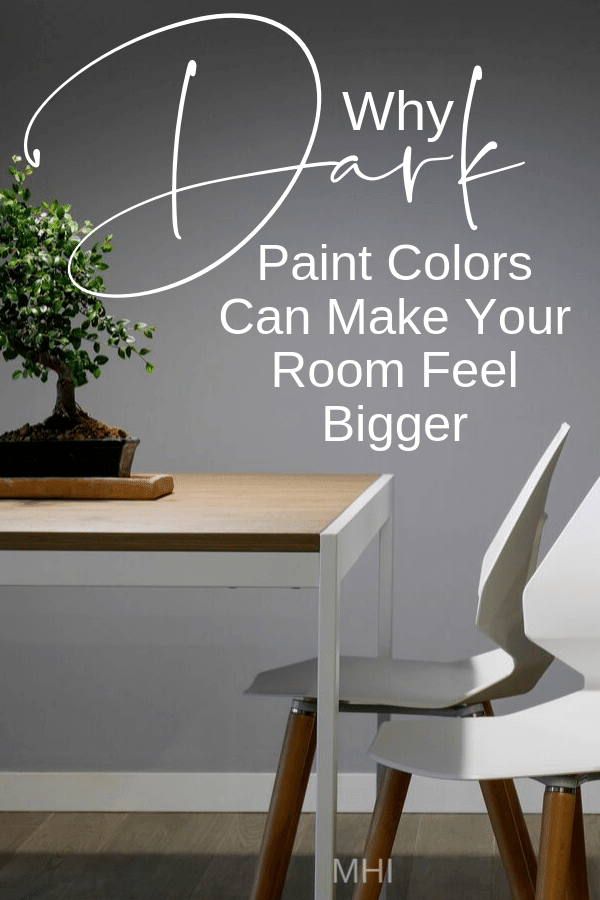Can You Paint a Small Room Dark?
The age-old design advice to paint small rooms in light, airy colors remains prevalent. This approach is based on the idea that light colors make spaces feel larger and more open, while darker hues can create a sense of claustrophobia. However, this notion is not entirely accurate. While it's true that light colors can visually expand a room, painting a small room dark is not a design faux pas and can create a stylish, inviting, and unique space.
The Benefits of Dark Paint in Small Spaces
Painting a small room dark can offer several advantages, challenging conventional wisdom. First, it can create a sense of intimacy and coziness, transforming a small room into a sanctuary or a dramatic focal point. Dark colors can also enhance the perceived depth of a room, making it appear larger than it actually is, particularly when combined with strategic lighting.
Moreover, dark paint can act as a neutral backdrop for statement furniture and accessories, allowing them to pop and stand out. This is especially useful in small rooms where every piece of furniture has to work hard to contribute to the overall aesthetic. Dark walls can also create a sense of tranquility and sophistication, adding an element of dramatic flair to the room.
Strategies for Using Dark Paint in Small Rooms
While painting a small room dark can be a bold choice, it requires careful planning to ensure the results are visually appealing and comfortable. The following strategies can help you achieve a balanced and well-designed space:
1. Choose the Right Dark Color
Not all dark colors are created equal. Some shades, like deep blues, greens, and grays, can feel more expansive and welcoming than others. Consider the mood you want to create and the overall style of the room. For example, a rich navy blue can create a sophisticated and calming atmosphere, while a deep charcoal gray can add a touch of modern elegance.
2. Incorporate Plenty of Light
Adequate lighting is crucial in a small room painted dark. Ensure ample natural light by keeping windows uncovered or using sheer curtains. Supplement natural light with a combination of overhead lighting, floor lamps, and table lamps. Layering light sources will create a warm and inviting ambiance, preventing the space from feeling too dark or gloomy.
3. Use Light Furniture and Accessories
To avoid overwhelming the space, select light-colored furniture and accessories to contrast with the dark walls. Consider using white, cream, light gray, or even metallic finishes. These lighter elements will help to reflect light and create a sense of balance in the room.
4. Add Visual Interest with Texture and Patterns
Introduce visual interest to the room using patterns, textures, and unique materials. Consider incorporating rugs with interesting designs, textured throws on furniture, or wall hangings with geometric patterns. These additions can help to break up the monotony of the dark walls and create a more dynamic and engaging space.
Conclusion
Painting a small room dark can be a bold and rewarding design choice. By choosing the right color, incorporating appropriate lighting, and incorporating light furniture and accessories, you can create a stylish, intimate, and visually stimulating space. Remember, the key to success is combining the dark paint with other design elements that create a balanced and welcoming atmosphere.

Do Dark Colors Make A Room Smaller Home Works Painting

Why Dark Paint Color Can Make Your Small Room Feel Bigger Michael Helwig Interiors

How Do I Use Dark Paint Colours In A Small Apartment

Should You Paint A Small Room Dark Color Curbly

Should You Paint A Small Room Dark Color Curbly

15 Paint Colours For Small Rooms Ideas Inspiration Benjamin Moore

Breaking Design Rules Dark Walls In Small Rooms Chic Misfits

The Problem With Dark Paint That No One Talks About Pros Cons Decorating

Surprise You Can Use Dark Colours In A Small Space Here S How

Should You Paint A Small Room Dark Color Curbly
Related Posts








